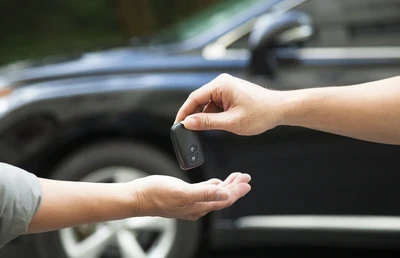Introduction:
Buying a car is a significant decision that comes with a multitude of factors to consider. One of the primary decisions you'll face is whether to buy a brand-new car or opt for a used one. Each option has its own set of advantages and disadvantages, and in this blog post, we'll delve into the pros and cons of buying new versus used cars. We'll also touch upon how Get Drivers Ed can assist you in making an informed choice, especially if you're a new driver.
Pros of Buying a New Car:
Warranty and Reliability: New cars come with warranties that cover repair costs for a specific period, providing peace of mind. They are also less likely to have hidden issues or previous accidents, resulting in increased reliability.
Advanced Technology: New cars often feature the latest in automotive technology, from safety features like adaptive cruise control to cutting-edge infotainment systems.
Fuel Efficiency: Newer models tend to have more efficient engines, which can save you money on fuel in the long run.
Safety: New cars are equipped with the latest safety features and are designed to meet or exceed current safety standards, making them a safer choice.
Personalization: When buying new, you can choose the exact make, model, and color you desire, ensuring that the vehicle meets your preferences.
Cons of Buying a New Car:
Depreciation: New cars lose their value quickly, often depreciating significantly within the first few years. This can result in a financial loss when you decide to sell or trade-in the vehicle.
Higher Insurance Costs: New cars typically have higher insurance premiums due to their higher value.
Higher Purchase Price: New cars come with a higher upfront cost compared to used cars of the same make and model.
Pros of Buying a Used Car:
Lower Depreciation: Used cars have already experienced their most significant depreciation, so you're less likely to lose as much money when you decide to sell.
Lower Insurance Costs: Used cars generally have lower insurance premiums, which can save you money over time.
More Car for Your Money: With the same budget, you can often afford a higher-end or better-equipped used car than a new one.
Vehicle History Reports: You can access vehicle history reports to check for accidents or other issues, providing transparency about the car's past.
Variety of Choices: The used car market offers a vast selection of makes, models, and price ranges to suit your needs and preferences.
Cons of Buying a Used Car:
Uncertain Maintenance History: Unlike new cars, used cars may have an unknown maintenance history, potentially leading to unexpected repair costs.
Limited or No Warranty: Most used cars don't come with warranties, so you may be responsible for repair expenses.
Potentially Outdated Technology: Older used cars may lack the latest safety and technology features found in newer models.
How Get Drivers Ed Can Help:
Making the right choice between a new and used car depends on your individual needs, budget, and preferences. Get Drivers Ed, a comprehensive online resource, can assist you in the decision-making process by providing valuable information about car ownership, maintenance, and safety. For new drivers, it offers driver's education courses to ensure you have the knowledge and skills needed to navigate the road safely.
Conclusion:
Choosing between a new and used car ultimately comes down to your unique circumstances. Assess your budget, priorities, and long-term goals before making a decision. Regardless of your choice, Get Drivers Ed can be your go-to resource for all things related to car ownership and road safety.


